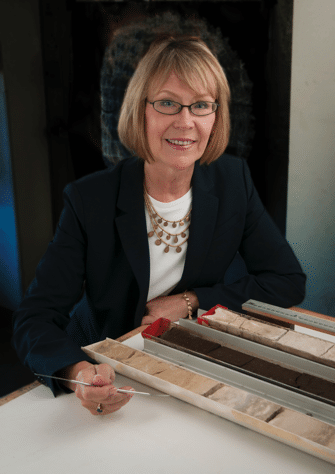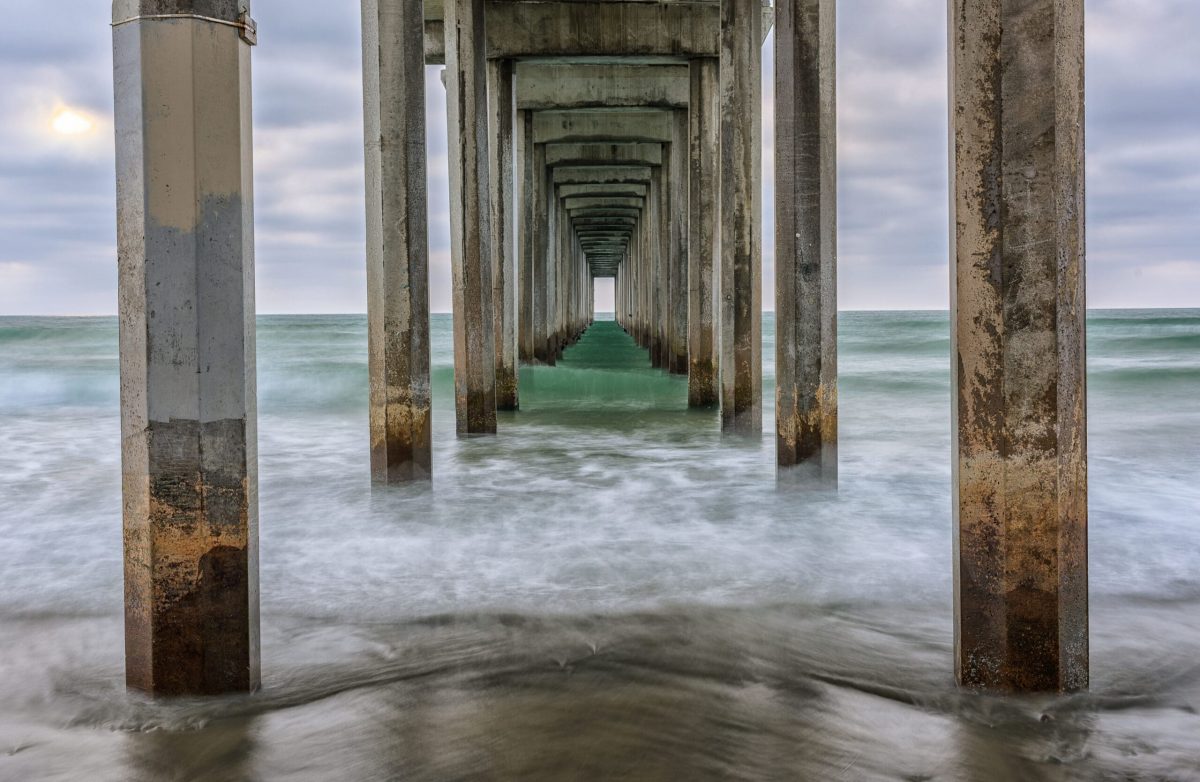In honor of the 11th Anniversary of the International Day of Climate Action, organized by 350.org , I sat down with Dr. Margaret Leinen, the Director of Scripps Institution of Oceanography at the University of California San Diego for an animated discussion on climate action and the Decade of Ocean Science for Sustainable Development.

Margaret Leinen is an award-winning oceanographer and distinguished national and international leader in ocean science, global climate and environmental issues.
She leads UC San Diego’s ocean, earth, atmospheric and climate science research and education programs at Scripps Institution of Oceanography, a leading environmental research institution that provides the knowledge necessary to understand our natural works and address global environmental challenges. Scripps Oceanography teaches the next generation of science leaders and partners with government, non-profits and the private sector to translate knowledge into action.
See below for some snippets of our interesting conversation on climate action through ocean health and the Decade of Ocean Science.
Shara: You are such an inspiring figure in ocean health and ocean science. Yet, if I did my research correctly, you aren’t from either of the US coasts. So how did you find the ocean, or how did it find you?
Dr. Leinen: Well, you’re right. I grew up in Illinois and I spent my entire life there until I went to graduate school in oceanography. I got an undergraduate degree in geology and I studied sedimentary rocks, rocks that form in water. And it seemed to me that as long as we were talking about sedimentary rocks from rivers and coasts and so forth, we pretty much knew the source of the rocks and could understand them and interpret them. But, when it got anything to do with rocks that formed in very deep water, it was all kind of nebulous. So, I thought, “Oh, I’ll go off and I’ll study oceanography…and then I’ll come back to geology and I’ll have all the answers.” So, I went to Oregon State University to study Geological Oceanography for my MS and then went on to University of Rhode Island for my PhD…And I just never went back to regular classical geology. So that’s how I got from Illinois to the ocean.
Shara: This October represents the 11th anniversary of the International Day of Climate Action. As someone who has led and witnessed the scientific community develop, how much progress do you feel has been made in climate action over the previous decade?
Dr. Leinen: Actually, there’s been a lot of progress. It’s not as much as we would like. [For example,] you don’t see it reflected in U.S. policy… But, if you take what has happened in the U.S., I think some of the latest polling shows that 70 percent of Americans believe not only that climate is changing, but that humans are the dominant influence on that change. And that’s quite a remarkable difference from a decade ago, which was more like, “Well, it’s changing, but I’m not so sure that it was just us, you know, or that we were the dominant force.” People won’t take action on things that they don’t believe in. So that shift is really quite important.
A lot of businesses now understand that climate change is a big issue and that they can combine energy savings or other kinds of resource savings while contributing to the solution. So, we see a lot of work on renewables and so forth in the energy sector…And then you look at agriculture — there’s a lot of work that’s going into adaptation in agriculture, you know, taking steps to have new kinds of seeds to plant crops that are more attuned with the environment, that require less nitrogen and phosphorus fertilizer and finding ways keep nutrient runoff out of water systems. Those are just a few of the things. Globally there’s much more progress on every aspect of climate action.
Well, first, this is the Decade of Ocean Science for Sustainable Development. It’s not just ocean science for ocean scientists..
Shara: As one of the leaders spearheading the UN Decade of Ocean Science for the Intergovernmental Oceanographic Commission, could you elaborate on the vision for the 2021-2030 Decade and the plans put forth for this important period?
Dr. Leinen: Well, first, this is the Decade of Ocean Science for Sustainable Development. It’s not just ocean science for ocean scientists…The program has a number of goals that really resonate with big issues, for example: a clean ocean. And as a scientist, some would say, “Well, what do you mean? Cleaner than what?” But the public understands that what they’re looking for is an ocean that is not polluted with nutrients, that’s not polluted with heavy metal runoff from land, [not] polluted with plastic. What they want to see is improvement and a decrease in what we put into the ocean that’s harmful.
The Ocean Decade also focuses on a productive ocean. So, one that can support fisheries and our use of fisheries sustainably. It also focuses on an ocean with healthy ecosystems. So, sustainable and healthy ecosystems. Another goal is a predicted ocean. And what we mean by that is an ocean that we know well enough to be able to predict hazards and what’s going to happen with our use [of the ocean] so that we understand the consequences of what we do. A safe ocean… one in which we understand and are protected from tsunamis and hurricanes and the harmful effects of El Niño events and other hazards.
There are some other goals, too. Ones that focus on information being freely available to everybody– open data and systems that allow us to access that data, an ocean that all can build the capacity to understand and use information about. Then finally, an ocean that is inspiring to the next generations. We want to engage people over this decade so that when we come out of it, the whole world is aware of the ocean, the way that it affects them personally, even if they live in the middle of a continent.
Shara: Going back to what we were discussing before, how the perceptions around climate change have grown and become better adopted in the last 10 years… we hope that that shift is happening for the health of the ocean too. What can daily citizens do to take action towards accomplishing some of the goals for the Agenda?
Dr. Leinen: Well, I think the most important thing we can do is vote…and vote for people who do care about the ocean and as a result, are willing to consider the ocean and our knowledge of the ocean as they make decisions about other things, not just about funding ocean science, but their decisions about policy for fishing or investing in systems that allow us to observe the ocean so we can predict tsunamis and hurricanes and so forth. Electing people who will serve us to do the big things for the ocean is really our first job.
Our second job is to look at what we’re doing now and see whether there are things that we can do to advocate for the ocean and to also “walk the talk” like recycling and having a lighter footprint. But also, making sustainable decisions about the seafood that we eat.
We want to engage people over this decade so that when we come out of it, the whole world is aware of the ocean, the way that it affects them personally, even if they live in the middle of a continent
Taking Action
- Learn more about the Decade of Ocean Science for Sustainable Development and the many goals for the 2020-2030 Decade. Eat Blue™ ambassador Charlie Chen also writes about the Decade here.
- We encourage everyone to follow Dr. Leinen’s sound advice by making a plan to vote this November. You can also learn about common terms, how to properly research candidates on your ballot, and making a voting plan at Usa.gov’s Voting & Elections page.
